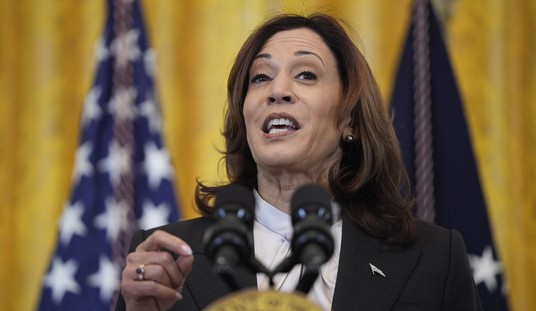It was a fateful decision – and a significant strategic mistake. Battered by the controversy over the remarks of his mentor and pastor, Jeremiah Wright, Barack Obama delivered a speech designed to switch the national conversation from Wright to race.
It’s easy to understand why. The speech allowed a candidate on the defensive to shift the issue from his “mentor’s” over-the-top rhetoric to the larger issue of America’s race relations. It was intended as an opportunity to regain the high ground, and perhaps even the moral authority so deeply eroded by his embrace of a man given to anti-American tirades. But both the decision to speak on race and the speech itself damaged the Barack Obama “brand.”
For many, the primary appeal of Obama’s message of “hope” and “change” was its success in transcending the politics of race. Since the campaign’s inception, Obama had successfully presented himself as a presidential candidate who happened to be black, rather than as a black presidential candidate. But by initiating yet another national dialogue on race relations, Obama has undermined his message of change and inserted himself into the middle of the most controversial area of American life – to his certain political detriment.
He now must engage in the most delicate kind of balancing act. To the extent that Obama emphasizes the post-racial aspects of his candidacy, he risks alienating his core constituency of African Americans – who may decide that he’s trying to downplay and distance himself from their collective experience. But if he continues to play up black identity issues, he will turn off independents and the blue-collar voters he needs to win, for many of the same reasons that Al Sharpton and Jessie Jackson do.
Recommended
There might have been an upside if Obama’s race speech truly had exemplified his campaign’s promise of a “new kind of politics.” But the speech, hailed as a triumph mostly by those already on the left, offered little in the way of a new perspective on race relations in America. His trademark eloquence was in evidence as he explained to white America the reasons for black anger; his acknowledgement of white resentment was measured and polite – though quickly blamed in part on “talk show hosts and conservative commentators.” So what was so groundbreaking? Who didn’t already know there were racial strains in America, why they exist, and that liberals blame them on conservatives?
Given that he was determined to talk about race – a mistake in itself – Obama could at least have offered something truly “new.” He could have delivered an oration that spent less time discussing the divisions between us, and more explaining why there are plenty of reasons to believe that America’s racial divisions can and will heal. He could have pointed out that racism must be waning when some of America’s most beloved icons – from Tiger Woods to Colin Powell to Oprah Winfrey – just happen to be black.
He could have noted the countless hours and dollars Americans – regardless of ideology or party – donate to help others, regardless of color, both here at home and across the world. He could have observed that today’s young people are much more comfortable in a multi-racial country than any generation before them. He could have praised the color-blindness that characterizes the military and the sports worlds, and offered them as models for American society in general. And he could have celebrated the Constitution as a founding document expressing unprecedented ideas – establishing a moral framework and a political system that enabled civil rights leaders to claim equality without violence, and on the basis of uniquely American values – rather than denouncing it as “stained by this nation’s original sin of slavery.”
After the events of the past couple weeks, completely recovering his political footing will not be easy for Obama. But here’s what he needs to do. Give the whole topic of race a rest. Stop proclaiming it to be “an issue this nation cannot afford to ignore right now” – a statement that elicits a response from many Americans that’s reminiscent of a man’s when his wife tells him that “we need to talk.” Resist the temptation to exploit every ambiguous remark about race by attributing it to invidious motives. And the next time that a racial controversy erupts (and it will), take the high road. Rather than trying to score cheap political points by comparing someone like Geraldine Ferraro to Jeremiah Wright, give her the benefit of the doubt.
Above all, Barack Obama must model the generosity of spirit that Americans of all colors need to demonstrate when sensitive racial issues arise. It won’t be easy. But it is the only way that he can re-establish his credentials as the apostle of a “new kind of politics” – and the best way to prove that his pastor’s hate-filled racial views truly are not his own.

























Join the conversation as a VIP Member